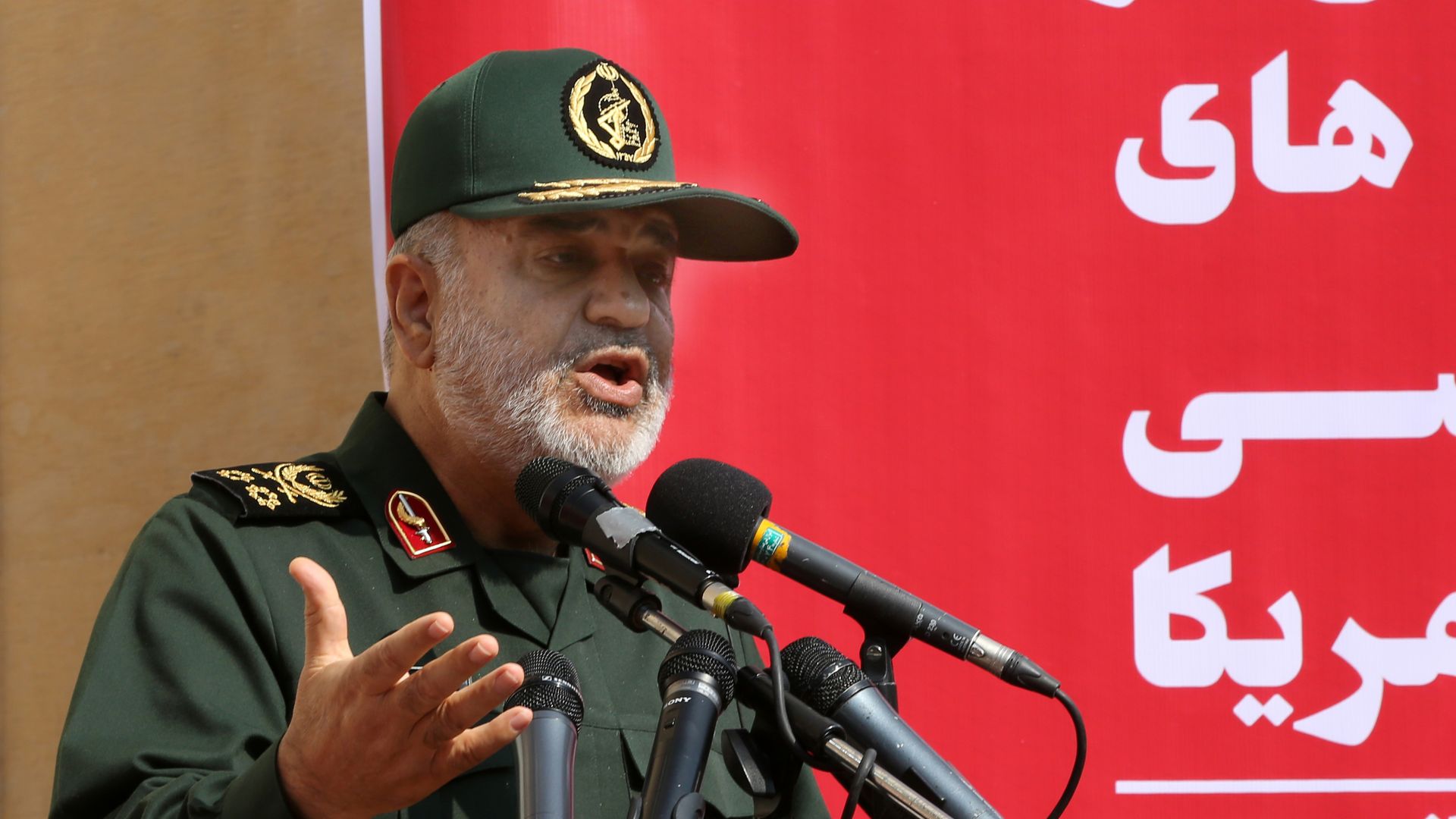Apr 12, 2021 - World
EU sanctions Iran over human rights abuses for first time since 2013
Add Axios as your preferred source to
see more of our stories on Google.

IRGC commander in chief Hossein Salami. Photo: Sepahnews/Handout/Anadolu Agency via Getty Images
